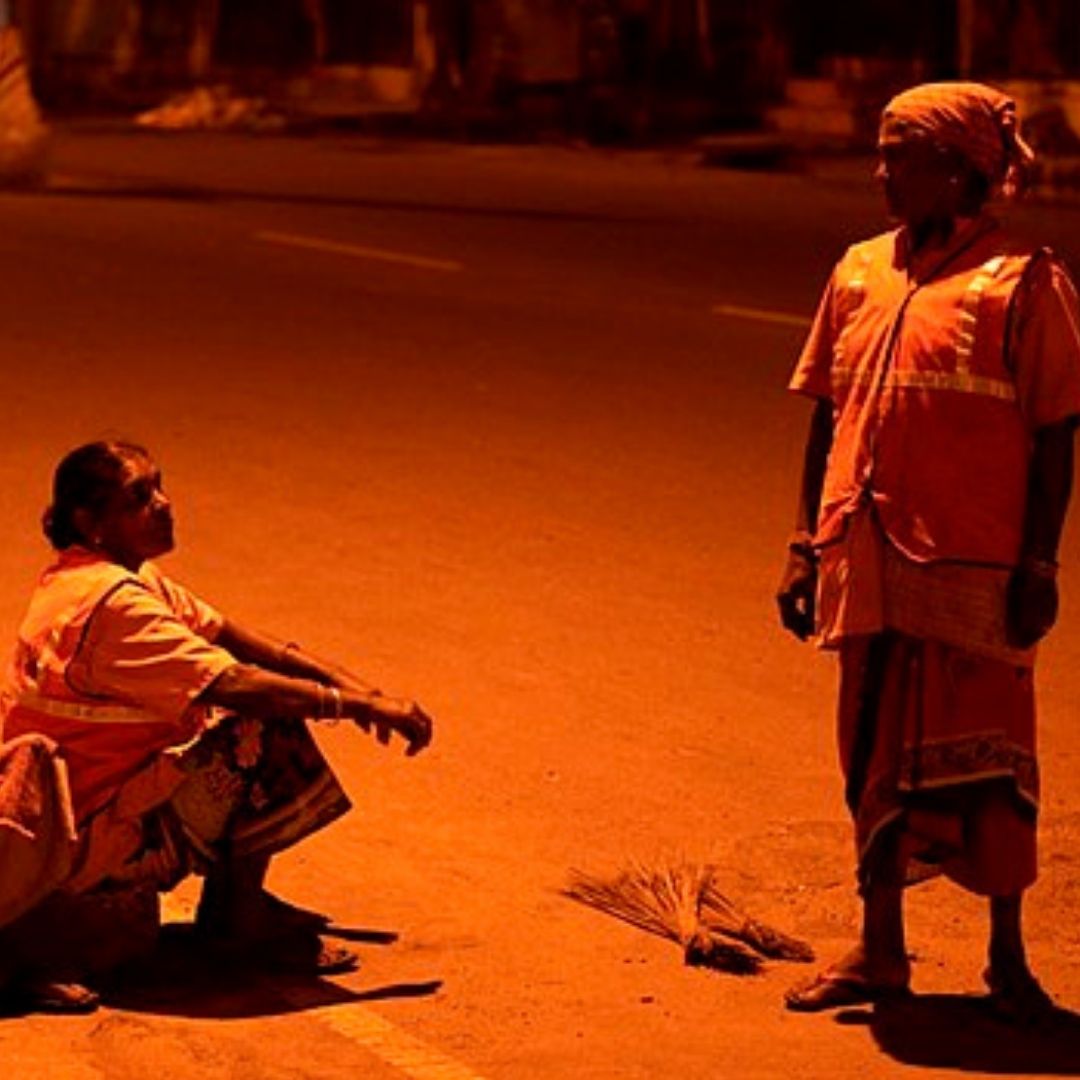
Image Credits: Wikimedia
World Toilet Day: 40% Of Sanitation Workers Lacked Hygienic Facilities During COVID-19
Writer: Akanksha Saxena
I am a budding journalist who loves to write stories that have the ability to connect with people.
India, 19 Nov 2021 12:33 PM GMT
Editor : Ankita Singh |
A literature lover who likes delving deeper into a wide range of societal issues and expresses her opinions about the same. Keeps looking for best-read recommendations while enjoying her coffee and tea.
Creatives : Akanksha Saxena
I am a budding journalist who loves to write stories that have the ability to connect with people.
Sanitation workers play an integral role in our day-to-day lives. However, the stigma around them leaves them vulnerable which was evident during the global pandemic.
World Toilet Day is observed to raise awareness about proper sanitation systems worldwide. Apart from providing toilets with clean facilities, it also sheds light on sanitation workers' plight around the world. They play a significant role in waste management, from emptying garbage bins to cleaning public and household washrooms.
According to the World Health Organisation (WHO), sanitation workers "provide an invaluable service that many of us only notice when confronted with locked, blocked, or filthy toilets; overflowing septic tanks, or beaches contaminated with sewage." However, they are often targeted because of their work. They are ostracised and discriminated against very often, which leaves them vulnerable.
The problem only aggravated during COVID-19. During the pandemic, focus on hygiene reached its pinnacle. The sanitation workers were exposed to the deadly virus as they had to work at the risk of contracting it. As per Water Aid, 40% of workers in the country did not have access to hygienic facilities, such as handwashing stations near their workplace. Adding to the stigma attached, the community did not have it easy.
Lack Of Handwashing Stations, Protection Gear
Titled 'Health, Safety and Social Security Challenges of Sanitation Workers During the COVID-19 Pandemic in India', the report looks into their problems during the pandemic. Most of the workers had to visit multiple locations in a day. Working in unhygienic conditions, they did not have handwashing stations nearby that exposed them to the virus. "Additionally, 68% of cleaners of sewers, septic tanks, septic tanks and drains lacked access to basic bathing facilities after work at their worksites. Some also reported a lack of changing and washing facilities due to which they had to look for sources of water near their work premises," said the study.
Along with this, there was unequal access to necessary protective gear during the pandemic. While some had masks, boots and gloves, some just had gloves and boots. 5% of the workers did not have any of these. The report adds, "The employer support for the provision of PPEs was higher for permanent staff as compared to contractual workers."
Lockdown Affected Employment
The nationwide lockdown proved detrimental for the sanitation workers. Around 23% of them had to work overtime as tasks were multiplied due to a smaller workforce. 30% of them faced commuting challenges.
For obvious reasons, this affected their livelihood. "13% of the sanitation workers interviewed had been completely out of work since lockdown. Of these, 92% of informal workers, while 8% were contractual workers," the report states. Female sanitation workers suffered the most. For them, juggling their household responsibilities with their work became a significant issue. Accessing sanitation facilities was another problem that they faced.
A lot of the sanitation workers were working in the containment zones. Many residents did not allow them to come inside their homes as they were exposed to the virus. Some of them even refused to work for specific communities that were considered as 'virus carriers.'
Need Of The Hour
It has been a year and the world is still reeling from the pandemic. However, its impact is still evident around the world. It is time for everyone to join hands to come together to fight this virus. Authorities around the country have to come up with adequate facilities to protect them from the virus and maintain hygiene. Not only that, awareness is necessary to reduce the stigma surrounding them even today.
Also Read: World Toilet Day: Why Do Indian Women Prefer Holding Their Pee Than Use Public Toilets?
 All section
All section














